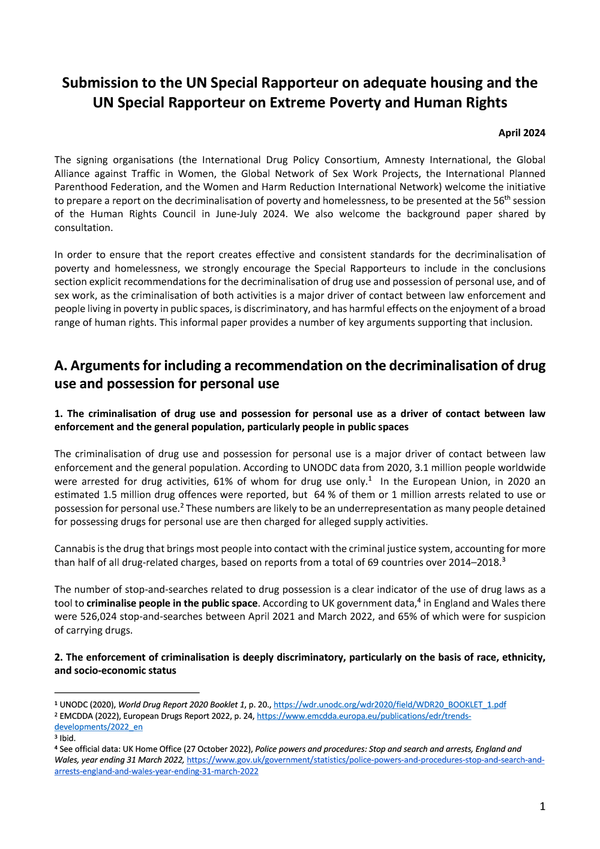Décriminalisation de l'usage de drogues et du travail du sexe pour mettre fin à la criminalisation de la pauvreté et du sans-abrisme - Contribution aux rapporteurs onusiens
L'IDPC et d'autres organisations appellent à reconnaître les effets nocifs de la criminalisation de l'usage de drogues et du travail sexuel en relation à l’action policière dans les espaces publics. Pour en savoir plus, en anglais, veuillez lire les informations ci-dessous.
The signing organisations (the International Drug Policy Consortium, Amnesty International, the Global Alliance against Traffic in Women, the Global Network of Sex Work Projects, the International Planned Parenthood Federation, and the Women and Harm Reduction International Network) welcome the initiative to prepare a report on the decriminalisation of poverty and homelessness, to be presented at the 56th session of the Human Rights Council in June-July 2024. We also welcome the background paper shared by consultation.
In order to ensure that the report creates effective and consistent standards for the decriminalisation of poverty and homelessness, we strongly encourage the Special Rapporteurs to include in the conclusions section explicit recommendations for the decriminalisation of drug use and possession of personal use, and of sex work, as the criminalisation of both activities is a major driver of contact between law enforcement and people living in poverty in public spaces, is discriminatory, and has harmful effects on the enjoyment of a broad range of human rights. This informal paper provides a number of key arguments supporting that inclusion.
